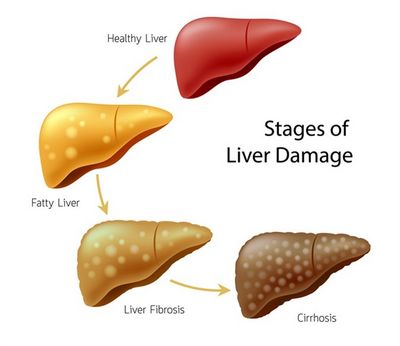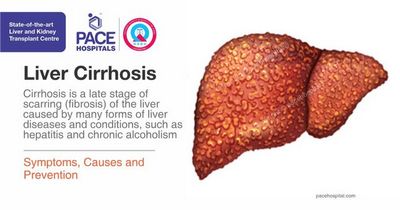
One in four people with cirrhosis of the liver will develop liver cancer in the future. A small percentage of patients with cirrhosis of the liver also develop liver cancer. Your doctor diagnoses cirrhosis of the liver with blood tests, x-rays, or ultrasounds. If your liver is affected by cirrhosis, you will have to undergo surgery to remove all or part of your liver.
Liver cirrhosis can be caused by many factors. Hepatitis, alcohol abuse, liver inflammation, and radiation therapy are some of the factors that increase the likelihood of developing cirrhosis. In the United States, the main causes of liver cirrhosis are chronic hepatitis and alcoholism. None of these factors can make the scar tissue of cirrhosis disappear, but treating the underlying cause can prevent it from worsening. Liver cirrhosis occurs rarely, and only in patients over 70 years of age.
Liver cirrhosis usually presents with symptoms such as liver failure, jaundice, dark urine, nausea, abdominal pain, fatigue, vomiting, and fever. Liver failure can be caused by several causes, including kidney disease and liver tumors. Excess fluid in the abdomen can cause jaundice as well as dark, pale yellow urine.
Inflammation of the liver is caused by liver damage caused by hepatitis C and HIV. Hepatitis C is a viral infection that affects the liver. When the liver becomes infected with hepatitis C, the patient develops a cirrhotic scar in the liver. Treatment involves removing the hepatitis C virus from the liver and treating its symptoms.
Hepatitis causes inflammation and scarring of the liver. Some patients with hepatitis C suffer from liver damage but show no symptoms. In these cases, the liver is only damaged and does not cause any problems.
Alcoholism also causes cirrhosis as it increases the risk of liver cancer. Liver cancer occurs when abnormal cells become cancerous and spread to the liver. Drinking alcohol also weakens the immune system. Over time, people lose the ability to fight disease and infection.
Cirrhosis of the liver can cause liver cancer, especially if you are an alcoholic. If you drink alcohol frequently, your liver will not be able to properly flush the alcohol out of your body, leading to a build-up of toxin. The liver becomes unable to filter the toxins of the alcohol. The more toxin accumulates in the liver, the more it can irritate its mucous membrane. The buildup can block your liver’s filtering system, causing it to shut down.

Liver cirrhosis is treatable. Treating the underlying factor, be it alcohol-related hepatitis or a liver tumor, will prevent cirrhosis and liver cancer.
Liver surgery is used to treat liver cirrhosis. However, surgery is often only used for a short period of time.
Natural treatments can be used to treat and prevent cirrhosis of the liver. These treatments are often combined with medication, diet, and exercise. There are many herbs that can help prevent liver cirrhosis and even stop its progression.
Green tea is very beneficial for the liver and may help prevent disease progression. The active ingredients in green tea are catechins. and theaflavins. inhibit the ability of platelets to break down cholesterol.
They also increase the production of "good" cholesterol, which makes it less likely that blood clots and other harmful substances get trapped in the walls of the arteries. Cholesterol can enter the bloodstream and build up in the liver and bloodstream. By increasing "good" cholesterol, they reduce the risk of blood clotting and liver damage. They also reduce the likelihood of blood clots forming in your arteries, causing heart attack and stroke.
Green tea also inhibits the production of cortisol, a stress hormone that can promote the growth of abnormal cells. It is known to reduce symptoms of arthritis, fatigue, depression and anxiety. Green tea can help reduce symptoms of arthritis and Alzheimer’s disease.